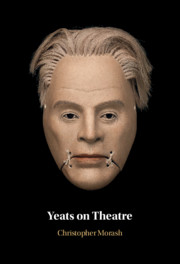Irish drama underwent an extraordinary rediscovery in Italy during the Second World War, primarily because of its political convenience (Ireland was a neutral nation) but also because of its aesthetic significance. Through an analysis of the role of key mediators I employ Irish literature as a lens to investigate a crucial moment of renewal within both Italian politics and theatre, emphasising strands of continuity between Fascist and post-Fascist practices. First, I show how a wartime ban on English and American plays prompted an interest in Irish drama and the fluid status of the Irish canon enabled authors of Irish origin (e.g. Eugene O’Neill), to be affiliated with Irish literature. I then move on to considering how this very fluidity facilitated the daring rebranding of Irish theatre as anti-fascist in Paolo Grassi’s ‘Collezione Teatro’, a key step in his position-taking at the centre of Italy’s theatrical field. Ireland was a substitute for England and appeared on Italian (political and literary) maps mainly thanks to its anti-English function. However, despite the politically inflected motivation of the various, often contrasting uses of the category ‘Irish drama’ in wartime Italy, this was the first time Irish literature had been widely acknowledged as a specific tradition within the Anglosphere in Italy.


